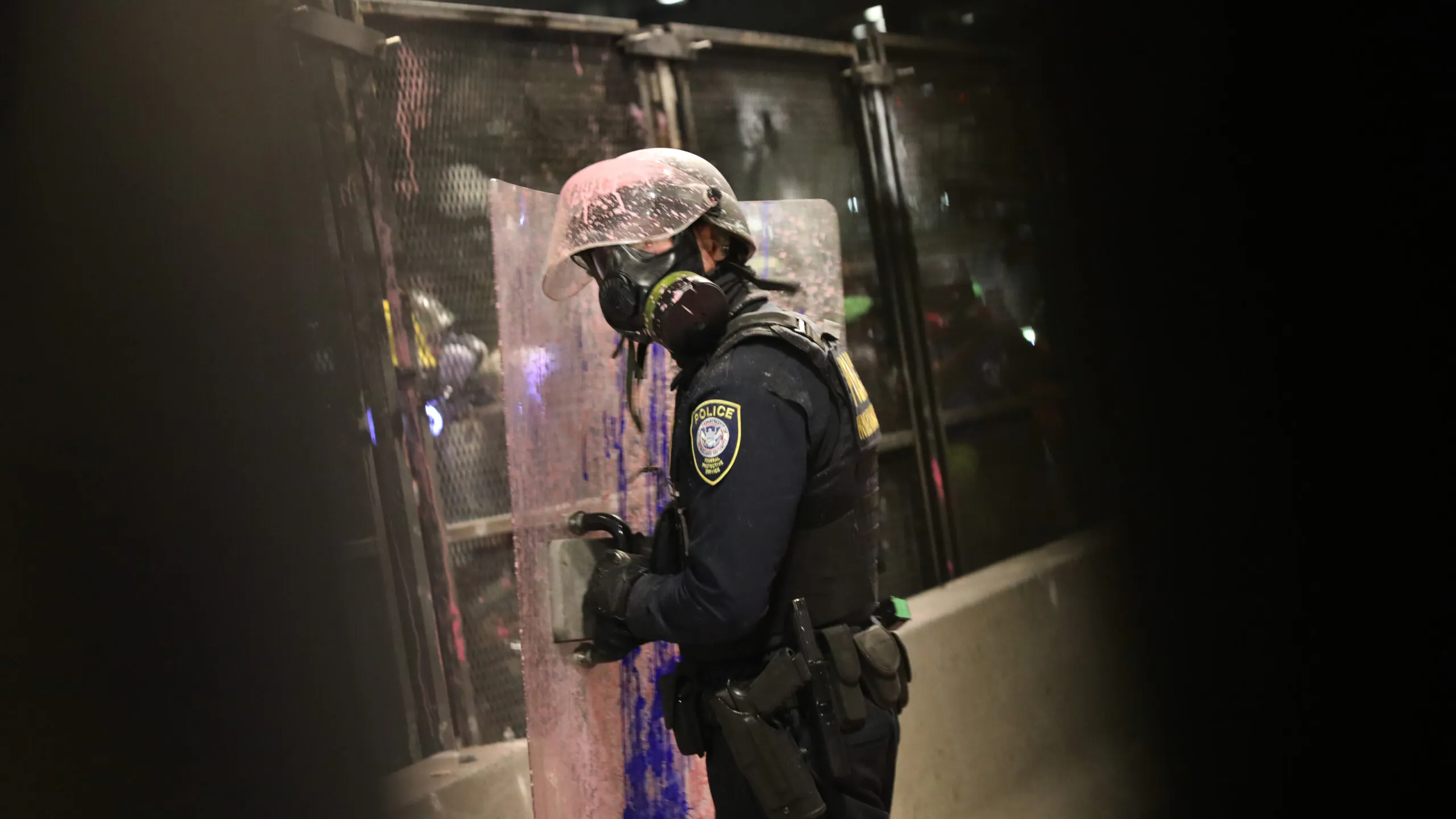Portland’s police chief pleaded with demonstrators in the pages of The New York Times Monday, asking those who want to speak out against racism and police brutality refrain from using violent means to get headlines.
Police Chief Chuck Lovell, implored protesters, “as a Black man and a public servant, I see that spectacle is drowning out the voices that need to be heard to make positive change.”
“The Portland Police Bureau remains committed to protecting life and responding to events as appropriate. I am proud of our efforts in extreme circumstances few in the country have faced,” Lovell said. “During these events, our agency has responded to assaults, stabbing, shootings, people with guns, and the stockpiling of explosives. Shooting off commercial-grade fireworks and mortars is not peaceful protest. We are fortunate that no one has been killed.”
The Portland Police Bureau recorded a record number of homicides in July, Oregon Live reports, as law enforcement struggled to handle both typical crime in the city and a growing, nightly protest that often turned into a riot.
The Portland Police Bureau says that 15 people were killed in the city in July — a very low number for a major American city, but a far higher number than Portland has experienced in years passed. In fact, the number of July homicides is triple that of any single month period in the city going back nearly three decades.
So far, 2020 is on track to be one of Portland’s most violent years ever, with 24 homicides so far. There were 63 shootings in July, also nearly triple the number from the same period one year ago.
Lovell, though, also took Portland’s critics to task, noting that Portland police, despite efforts to defund particular departments, have been doing their best to quell the unrest that has, so far, gone on for more than two months. He also begged protesters to see the humanity in Portland’s police department, and to see officers as individuals with families of their own.
“There are those who say the Portland police have not done enough to quell violence,” Lovell wrote. “I ask them to come speak with our officers, who have been responding for two months to protests. They have served with professionalism, courage, and resiliency through an extraordinary time. Many have been injured and some have received threats of violence to themselves or their families. They would prefer to return to regular patrol and investigative duties and see peace in our community.”
Portland is just one of a number of major cities experiencing a summer crime wave, the result, experts say of both a decrease in law enforcement resources and long-term coronavirus-related lockdowns, which kept many people stuck inside from March until late May.
The Wall Street Journal reports Monday that the “homicide spike” is hitting cities from New York, New York, to Los Angeles, California, with some cities, like Chicago, Illinois, posting record-breaking homicide numbers even as national crime numbers are on the decline overall.
“A Wall Street Journal analysis of crime statistics among the nation’s 50 largest cities found that reported homicides were up 24% so far this year, to 3,612. Shootings and gun violence also rose, even though many other violent crimes such as robbery fell,” the outlet says.
The phenomenon is difficult to explain, the WSJ adds, but in many cases, is the result of an increase in gang violence — cycles of retribution, and in many cases, revenge, have sped up over the summer: “Police, researchers, mayors, and community leaders see a confluence of forces at work in the homicide spike. Institutions that keep city communities safe have been destabilized by lockdown and protests against police. Lockdowns and recession also mean tensions are running high and streets have been emptied of eyes and ears on their communities. Some attribute the rise to an increase in gang violence.”

.png)
.png)

